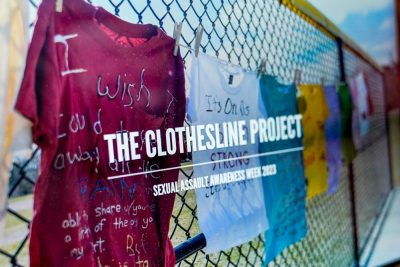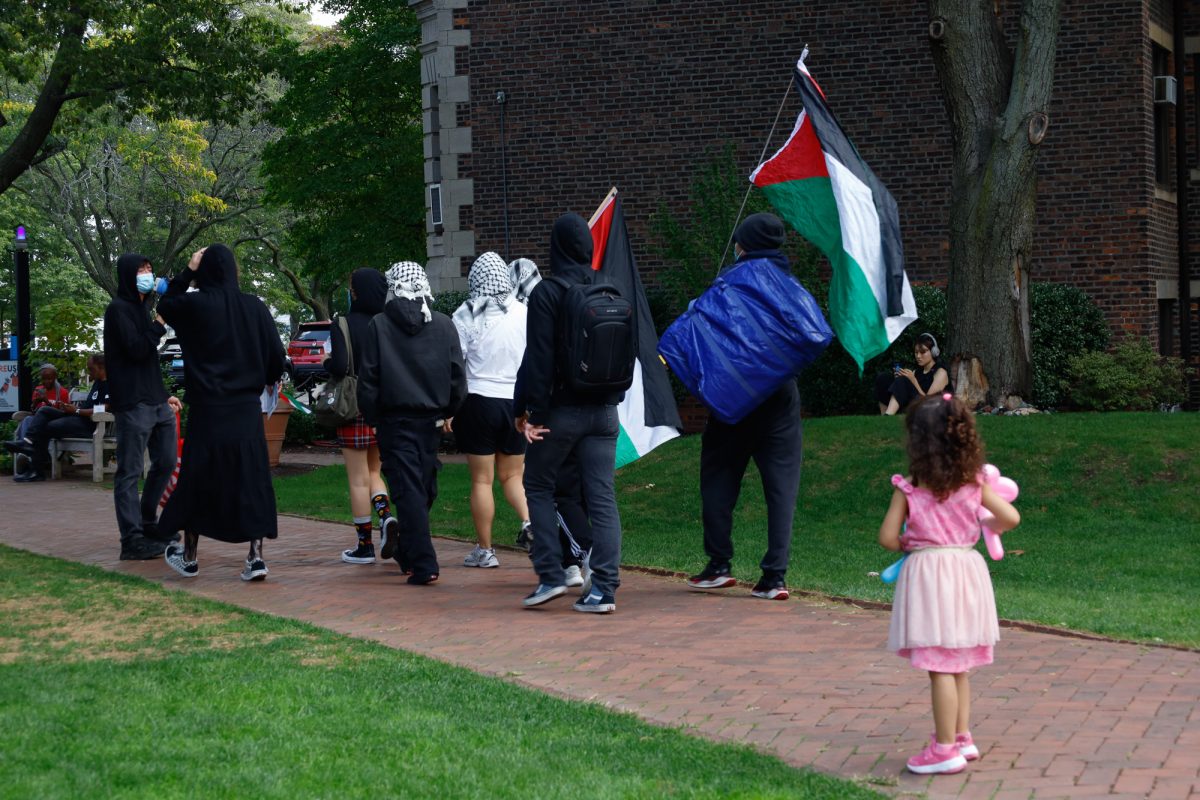The Clothesline Project, an artistic display of sexual assault survivors’ experiences, celebrated its 10th anniversary at Boston University this Monday with an all-new fully virtual format.

The project, brought to BU by the University’s Sexual Assault Response and Prevention Center, features shirts which survivors have decorated with visual and textual retellings of their sexual assault stories. It is one of many activities SARP has planned for April, which is Sexual Assault Awareness Month.
Ashley Slay, associate director of Interpersonal Violence Prevention at SARP, said the Clothesline Project brings visibility to the isolating and often stigmatized issue of sexual assault.
“We know that sometimes folks don’t feel empowered to share their stories and oftentimes are living in isolation and not expressing themselves,” Slay said. “Using the clothesline is an anonymous way for folks to share their stories and for people in the community to have an understanding of what actually is happening.”
In previous years at BU, the Clothesline Project offered an in-person installation of the clothesline with stories from BU survivors to further the solidarity its founders envisioned. This year, the project takes place on a website where students can see past works.
“During the pandemic we still wanted to have students have an opportunity to engage with the Clothesline Project even if they weren’t on campus or just didn’t feel safe going to the BU Arts Initiative to see it,” Slay said. “We decided this was a pretty convenient and good way to continue to have the project as something that students can engage with.”
SARP offers free therapy, a fund to cover survivors’ clothing, transportation needs and more, said SARP student ambassador Betty Markman.
“So for the clinical side, SARP offers completely free therapy if you’re a BU student, it doesn’t even count your insurance,” Markman said. “Whatever you tell us is completely confidential, we don’t share with anybody which I think is a misconception that people have like, ‘Oh if you talk to SARP [they’re] going to tell administration about it.’”
Stacey Turabelidze, the president of Let’s Talk About It, a mental health awareness club that collaborated with SARP on a workshop in February, said there is a “clear connection between sexual violence and mental health” and applauded the Clothesline Project for destigmatizing the topic.
“It’s important to have student voices be heard, because I think BU lacks a little bit in that in regards to administration,” Turabelidze said.
Markman said events like the Clothesline Project during sexual assault awareness month focus on “making people feel more comfortable around it and making people feel like it’s okay to talk about these things.”
Despite continued stigma around sexual assault, Slay emphasized the enormous progress SARP has made in the last few years.
“I’m really impressed and proud of the conversations I’m seeing happening around sexual violence,” Slay said. “I think more now than ever we’re seeing students who want to be actively engaged and want to be talking about this issue.”
Slay encouraged both survivors and allies to interact with the website, as well as SARP’s other Sexual Assault Awareness Month initiatives.
“What I would say to survivors is that they’re not alone, and there is a space on campus where they can get support by coming to SARP and seeking out resources here,” Slay said.


















































































































